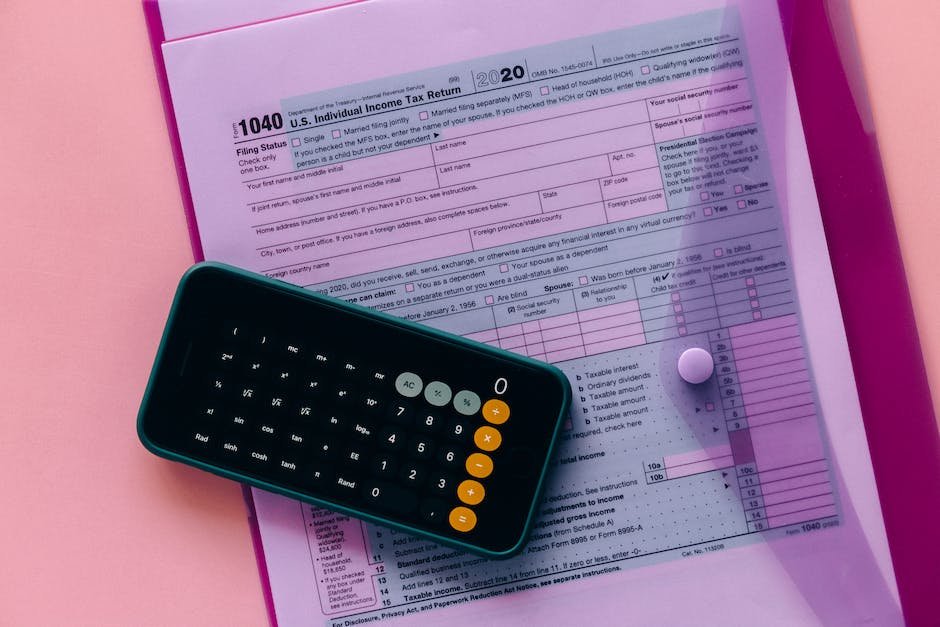Contents
The answer to this question depends on the country you are freelancing in. In the United States, for example, freelancers are considered self-employed and are thus required to pay what is called a self-employment tax, which includes social security and Medicare taxes. These taxes are typically deducted from your earnings by your clients before you are paid. If you are freelancing in a country with different taxation rules, be sure to research how taxes work for freelancers in that country.
If you’re a freelancer in the United States, you’re responsible for paying your own taxes. This includes paying federal, state, and local taxes.
There are a few different ways that you can pay your taxes as a freelancer. You can pay them yourself, or you can have them withheld from your earnings.
If you pay your taxes yourself, you’ll need to estimated your tax liability for the year and make quarterly payments to the IRS. You can also make a lump sum payment when you file your taxes.
If you have your taxes withheld from your earnings, your clients will withhold taxes from your payments and send them to the government on your behalf.
Paying your taxes as a freelancer can be a bit complicated, but it’s important to make sure that you stay compliant with the law. Be sure to talk to a tax professional if you have any questions about paying your taxes as a freelancer.
How do you pay taxes if you are a freelancer?
As a freelancer, you will typically file your taxes as a sole proprietor. This means that you will file a Schedule C form that integrates with your personal tax return. Once you reach a point where you are making thousands of dollars in net profit, you may want to look into filing as an S-corp. This can help you save on taxes and may provide other benefits as well. Consult with a tax professional to see if this is right for you.
There is no W-2 self-employed specific form that you can create Instead, you must report your self-employment income on Schedule C (Form 1040) to report income or (loss) from any business you operated or profession you practiced as a sole proprietor in which you engaged for profit.
Do you have to report freelance income on taxes
If you are self-employed and your net earnings from self-employment were $400 or more, you are required to file an income tax return. If your net earnings from self-employment were less than $400, you are still required to file an income tax return if you meet any other filing requirement listed in the Form 1040 and 1040-SR instructions.
As a freelancer, you are responsible for paying the self-employment tax of 153% in 2022. This tax represents the Social Security and Medicare taxes that businesses pay and that employees have taken out of their paychecks automatically.
How much should I put aside for taxes as a freelancer?
As a freelancer, it’s important to budget for both income tax and FICA taxes. You should plan to set aside 25% to 30% of your taxable freelance income to pay quarterly taxes and any additional tax that you owe when you file your taxes in April.
You can use IRS Form 1040-ES to calculate your estimated tax payments. This will help you make sure that you’re setting aside enough money to cover your tax liability.
If you receive a 1099 form that reports your nonemployee compensation and you don’t include the income on your tax return, you may be subject to a penalty for not filing. By failing to report this income on your 1040 tax form, it will result in underreporting your income and your tax liability.
Do I have to file taxes if I make less than $5000 a year?
If you made less than $5,000, you typically don’t need to file any taxes for the IRS. Your employment status can also be used to determine if you’re making less than $5,000.
Self-employment income must be reported to the government in order to ensure that the right amount of taxes are being paid. Not reporting this type of income is a federal and state crime, and can result in significant penalties. These include a fee on the amount not paid, interest being charged on the amount not paid, and in some cases, imprisonment. Therefore, it is important to take care to ensure that all self-employment income is properly reported.
How do freelancers prove income
There are a few different ways that you can go about proving your self-employment income to potential lenders. The most credible way would be to show your annual tax return (Form 1040) as this is an official document that is recognized by the IRS. You could also provide 1099 Forms, bank statements, profit/loss statements, or self-employed pay stubs as additional supporting documentation. Ultimately, the more documentation you can provide, the better off you’ll be in proving your income and getting approved for a loan.
If you expect to owe at least $1,000 in taxes this year, you should pay taxes quarterly, according to the IRS. This is because taxes from your freelance income aren’t being withheld throughout the year. Estimating your taxes for the upcoming year and paying the IRS on a quarterly basis is a good way to avoid a large tax bill at the end of the year.
How much tax will I pay on 15000 self-employed?
The self-employment tax rate is 153% of net earnings. That rate is the sum of a 124% Social Security tax and a 29% Medicare tax on net earnings. Self-employment tax is not the same as income tax. For the 2022 tax year, the first $147,000 of earnings is subject to the Social Security portion.
This is great news for anyone looking to start freelancing in India! You no longer need to go through the hassle of getting a trade license or registering as a sole proprietor or business. As long as your annual earnings are less than 20 lakh rupees, you can start freelancing without any business license.
Why are freelance taxes so high
There are a few things to note about being self-employed and the taxes that come along with it. Firstly, in addition to income taxes, self-employed individuals are also responsible for a 153% tax covering Social Security and Medicare. This is because, unlike employees who have their employers help pay for these taxes, the IRS views entrepreneurs as both the employee and employer. Therefore, they are subject to a higher tax rate. Secondly, it is important to be aware of the deadlines for filing and paying self-employment taxes, which are usually April 15th and June 15th, respectively. Failure to comply with these deadlines can result in penalties and interest charges. Finally, it is worth mentioning that many states also require self-employed individuals to pay state taxes, so be sure to check with your state’s tax laws.
As soon as you become self-employed, you need to get registered with HMRC. Even if you don’t find work for six months, it has to be done from the off. This includes freelancing on the side – any paid work you’re doing that doesn’t have tax already deducted counts as self-employed.
How much money can I make without reporting it?
For the 2022 tax year, the gross income threshold for filing taxes is between $12,550 and $28,500, depending on your age, filing status, and dependents. If you have self-employment income, you’re required to report your income and file taxes if you make $400 or more.
The IRS computer system is very accurate in matching up your income with what your employers have reported. If there is a discrepancy, the IRS will contact you to resolve the issue.
Do I have to file taxes if I made less than $600
If you earn less than $600 total for the tax year, you are not required to file a tax return. This also applies to your self-employment taxes if your net earnings are under $399 for the tax year.
If you make $5,000 a year living in the region of California, USA, you will be taxed $438 That means that your net pay will be $4,563 per year, or $380 per month.
How do I know if I need to file taxes
There are a few things to keep in mind when determining whether or not you need to file taxes. First, take into account your income. If it falls below a certain amount, you are not required to file. Second, consider your filing status. This includes things like being married, having dependents, or being a student. Third, your age can play a role in whether or not you need to file taxes. And finally, there may be other special circumstances that exempt you from filing taxes. However, even if you are not required to file, you may want to do so in order to take advantage of tax credits and other benefits.
Regardless of income, if you had self-employment net earnings of at least $400, received distributions from a health savings account, Archer Medical Savings Account or Medicare Advantage MSA, or owe taxes on an IRA, health savings account or other tax-favored account, you’ll generally have to file a tax return.
Will my employer know if I freelance
If you’re thinking of starting a side hustle, or are already self-employed, you might be wondering if your employer will find out. The short answer is no, they won’t automatically find out.
Of course, there are ways they could find out (for example, if you use company resources to help with your side hustle), but in general, it’s not something they’ll be aware of unless you tell them.
So if you’re thinking of starting a side hustle, go for it! Just be aware of the potential risks (like your employer finding out), and take steps to minimize them.
As a freelancer, it’s important to keep your personal and business finances separate. Set up a business bank account and budget to help you keep track of your income and expenses. Check in with your finances every week to make sure you’re on track. Be sure to time your projects and invoices so you can demand on-time payments. Finally, set aside money for taxes and savings so you can stay ahead of your financial obligations.
Conclusion
There is no definitive answer to this question since it varies based on country and tax laws. However, in general, when you are self-employed, you are responsible for paying your own taxes. This means that you will need to set aside money each month to cover your tax bill. Alternatively, you can make quarterly or annual tax payments. You will need to work with an accountant or tax specialist to ensure that you are paying the correct amount of tax.
Although there are a few different ways to pay taxes when freelancing, the most common way is to pay self-employment tax. This tax is a percentage of your income, and it is paid to the government. The amount of self-employment tax you pay will depend on how much money you make.

0 Comments